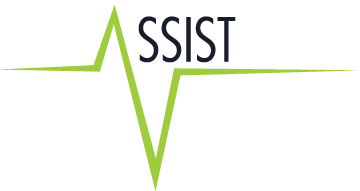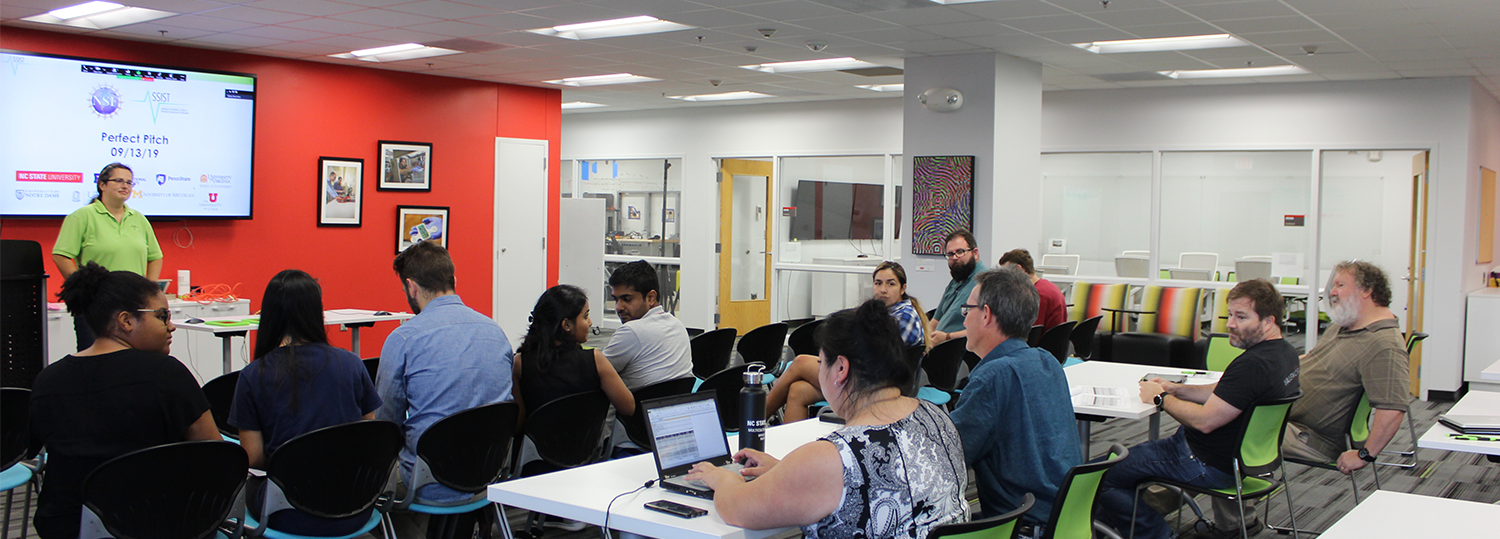The Competition
In preparation for the NSF ERC Biennial Meeting, ASSIST hosted its Perfect Pitch Competition on September 13, 2019. Nine graduate and undergraduate students from across the Center’s four core partner institutions participated in this event. In 90 seconds and a single slide, each student pitched a problem or opportunity connected with the ERC strategic vision, their proposed solution, and the potential impact of the work. Five judges representing both industry and academia kindly volunteered their time to judge the student pitches and offer feedback on the presentations.
The Perfect Pitch competition is a long-standing NSF ERC tradition which aims to stimulate a culture of innovation and entrepreneurship. It promotes cross-ERC student interaction, highlights the importance of concise and persuasive oral communication, and empowers students to lead and strive towards broader impacts.
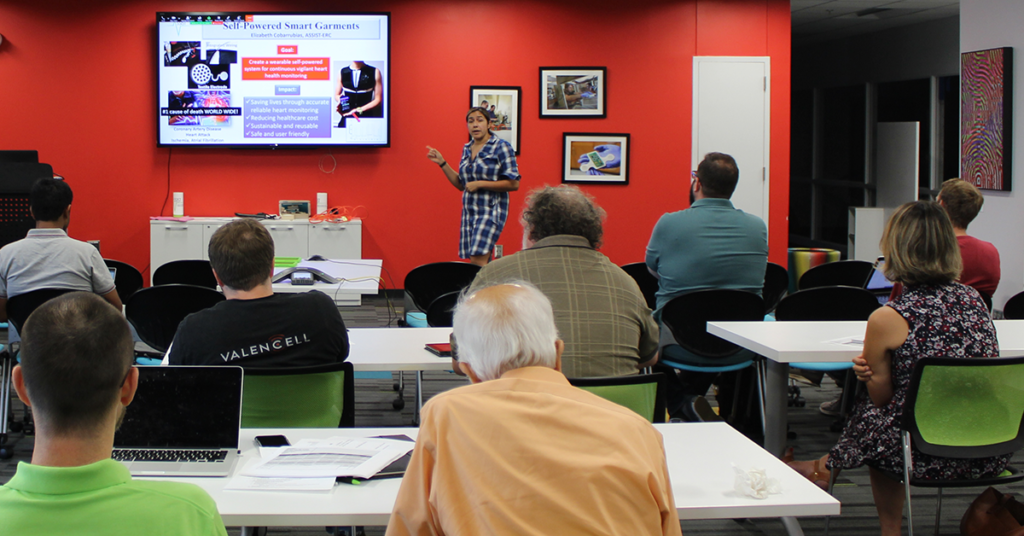
1st place winner, Elizabeth Cobarrubias 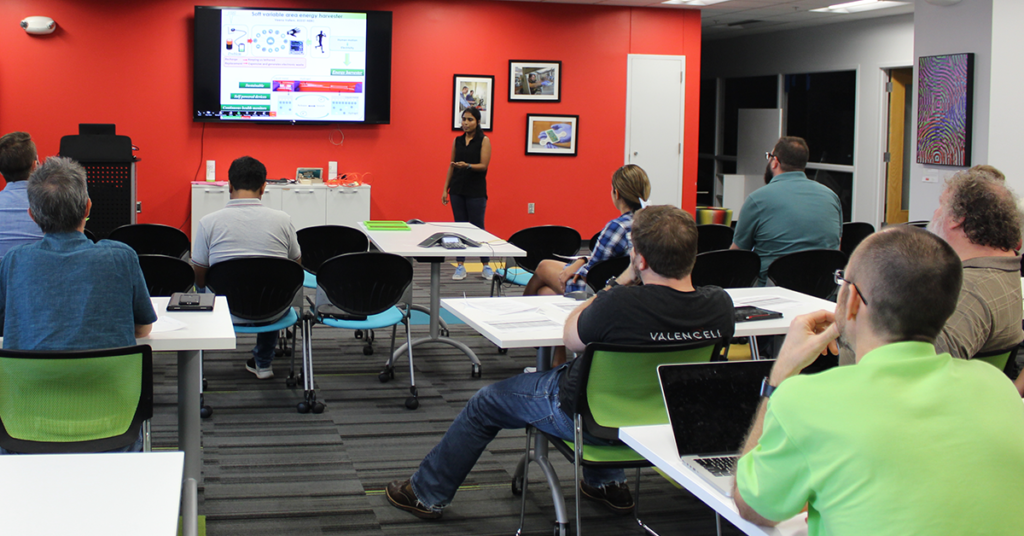
2nd place winner, Veena Vallem 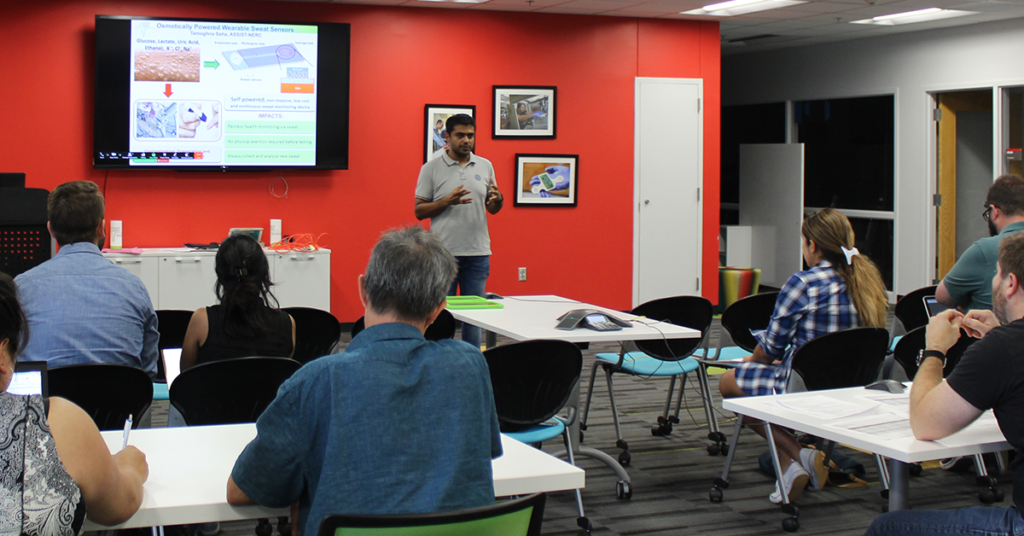
3rd place winner, Tamoghna Saha
The pitches represented a wide variety of technologies and application areas that are crucial to the ASSIST mission and vision. All of the students did a fantastic job and we wish they could all represent ASSIST at the final competition in October. However, the rules of the competition require us to nominate just one student to pitch at the Biennial Meeting.
ASSIST is proud to announce that the winner of this year’s Perfect Pitch is Elizabeth Cobarrubias, a graduate student in Textiles Engineering. Elizabeth presented a very compelling vision of self-powered smart garments. She argued that such technology can not only save lives but also reduce healthcare costs through accurate, reliable, wearable, and cardiac monitoring.
In second place, Veena Vallem, a graduate student in Chemical and Biomolecular Engineering, shared her vision of self-powered devices enabled by a stretchable, flexible, energy harvester using liquid metals embedded in a soft hydrogel. These devices can harness the energy from human body motion such as knee or elbow bending and use that energy to power sensors and wearable systems.
In third place, Tamoghna Saha, a graduate student in the department of Chemical and Biomolecular Engineering, shared his work on self-powered sweat sensors that can continuously detect key biochemical markers including glucose and lactate, painlessly and non-invasively. These sensors will enable low-cost monitoring of health parameters that traditionally require blood draws and trips to a health care provider’s office.
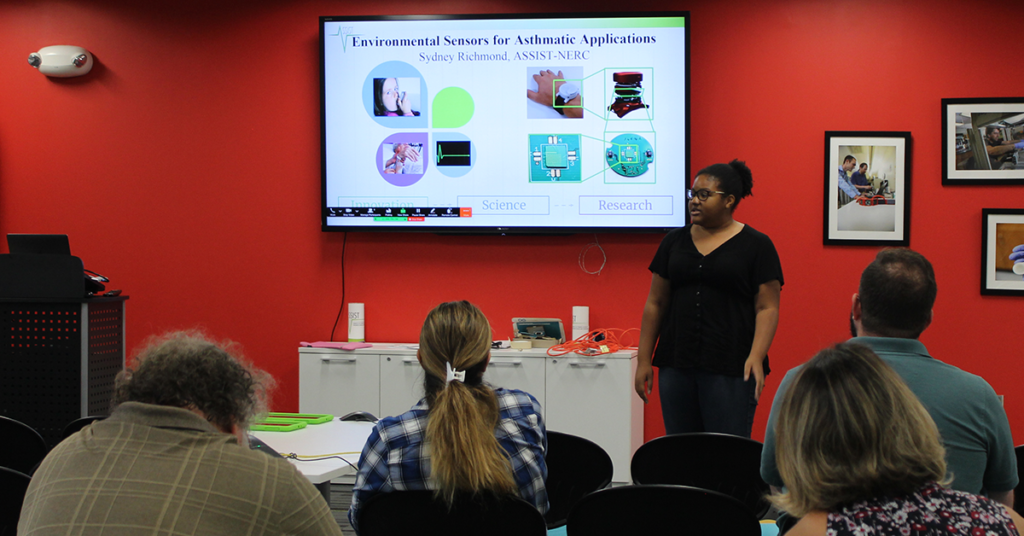
Sydney Richmond 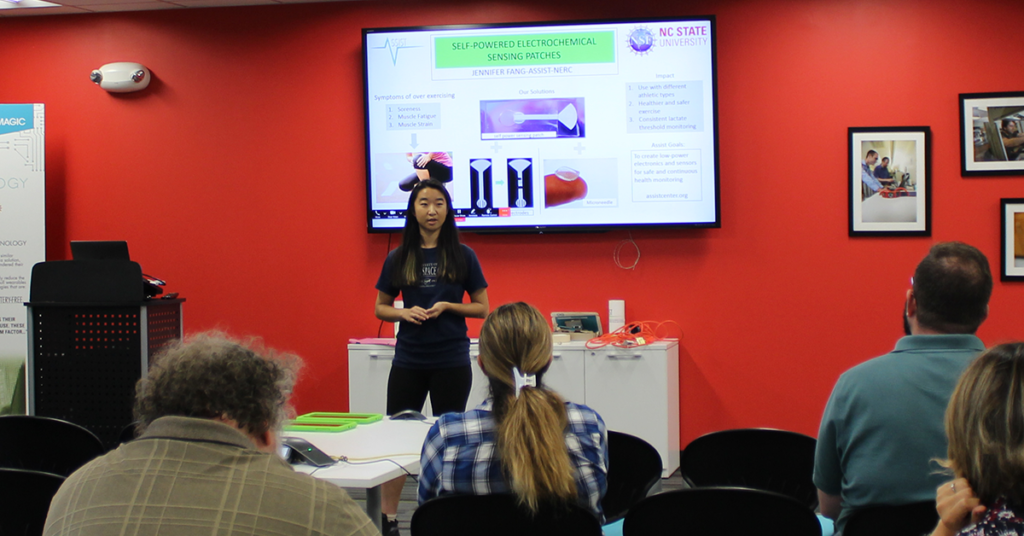
Jennifer Fang 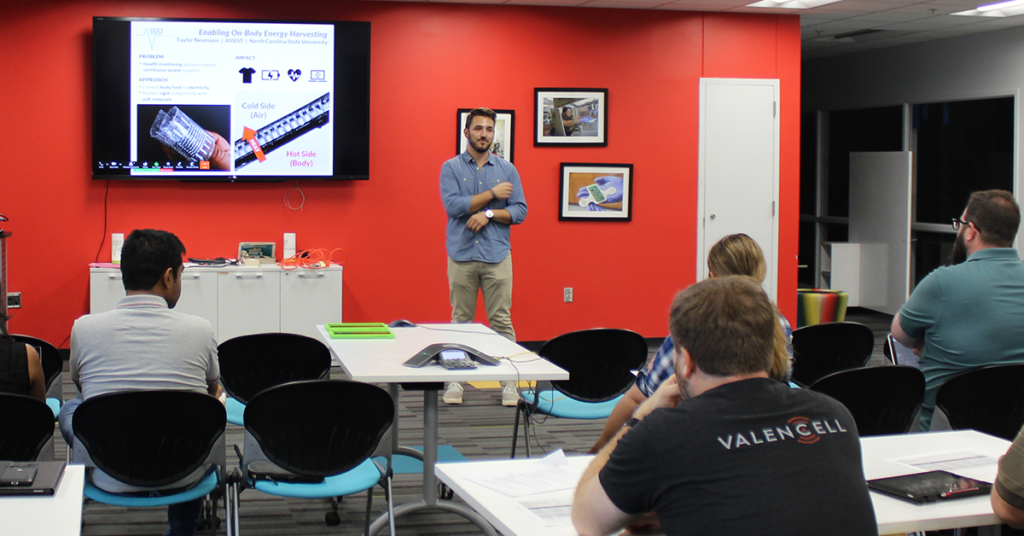
Taylor Neumann
The Participants
We would like to congratulate all of our participants and thank them for their hard work in preparing for this event:
- Luis Lopez Ruiz, University of Virginia, Topic: Self-powered Wearable for Cardiac and Activity Monitoring
- Sydney Richmond, NC State, Topic: Environmental Sensors for Asthma Applications
- Jennifer Fang, NC State, Topic: Self-Powered Electrochemical Sensing Patches
- Taylor Neumann, NC State, Topic: Enabling On-Body Energy Harvesting
- Tamoghna Saha, NC State, Topic: Osmotically Powered Wearable Sweat Sensors
- Dixiong Wang, Penn State, Topic: Mechanical Energy Harvesters for Self-Powered Health Monitors
- Dieff Vital, Florida International, Topic: Smart Solutions for Wound Healing Monitoring and Sensing
A special thanks, as well, to our wonderful judges Lisa Chang, Chris Lamb, Steven LeBoeuf, Marshall Brain, and Funda Gunes.
